Native Voices centers Indigenous voices and perspectives, authentically grounding all learning in traditional ways of learning and knowing, and developing teacher skills in culturally responsive teaching. The program achieves this through a community-based team of Native Elders, teaching artists, and culture keepers – the Native Voices Leadership Team (NVLT) – which leads all aspects of the program. Members of the NVLT collaborate on planning academies, developing story and place-based curriculum, teaching in academies and mentorships, and evaluating the program.
The NVLT developed organically from the Tribal communities served in the program to lead the vision for Native Voices, engage with school communities, and advocate for students and families. The members of the NVLT, as well as other Tribal members with whom the team consults, are compensated for their time and work and provide collective guidance for all programmatic decisions.
Johnny Buck (Yakama)
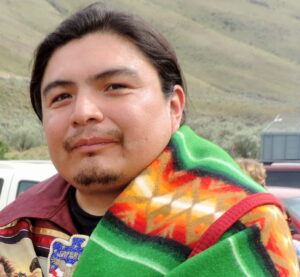
Johnny Buck thinks that Indigenous leaders have the creative power and self-determination to strengthen our nation’s resilience and the innovation to develop novel models for regenerative communities. He supports Na’ah Illahee Fund’s work leading to power building and developing policies that facilitate systemic change to achieve justice, liberation, and healing. Johnny helps NIF change systems, policies, structures, and practices that have kept inequity in place for Indigenous communities.
He received his Bachelor of Science Native Environmental Science in 2019 from Northwest Indian College, a Leadership that Works-Coaching for Community Transformation Certificate, and a George Washington University-Native American Political Leadership Certificate. Johnny is currently working on his Coaching for Healing, Justice, and Liberation-Professional Coaching Certification.
He brings a deep understanding of Native cultures and customs and a rooted network of relationships with Tribes as an inter-Tribal collaborator, cross-cultural relationship builder, facilitator, and fundraiser with healing-centered, sustainability, and Indigenous approaches to his work. Johnny has been in natural resource management, nonprofit management, leadership development, and policy development roles nationally and in Washington State for 12 years. Johnny volunteers as an Interim Board of Directors member for the BIPOC Health Careers Ecosystem, a volunteer-driven group of BIPOC leaders and professionals throughout Washington State, dedicated to significantly developing BIPOC healthcare leaders and increasing the number of BIPOC health professionals in Washington State. He also supports the Seattle Equity Summit Collaborative as a planning committee member and the Greater Seattle Business Association Scholarship Fund as a facilitator.
When not at work, you can see Johnny with his family enjoying soccer games, hiking, gathering traditional foods, participating in Tribal ceremonies, cooking, working on his art, and streaming shows.
Beverly Harding Buehler

Beverly Harding Buehler (she/her/Euro American) – Executive Director of Arts Impact– is a visual artist (mixed media collage, children’s book illustration, stained glass and installation work), arts educator and curriculum specialist. She began her teaching career in East Africa in 1981 and has focused on multicultural, anti-racist teaching in and through the arts from then on. Ms. Harding Buehler began work with Arts Impact in 2002 as an artist mentor. She has served as the Director of Arts Impact since 2013.
Shameka Gagnier (Purhépechan)
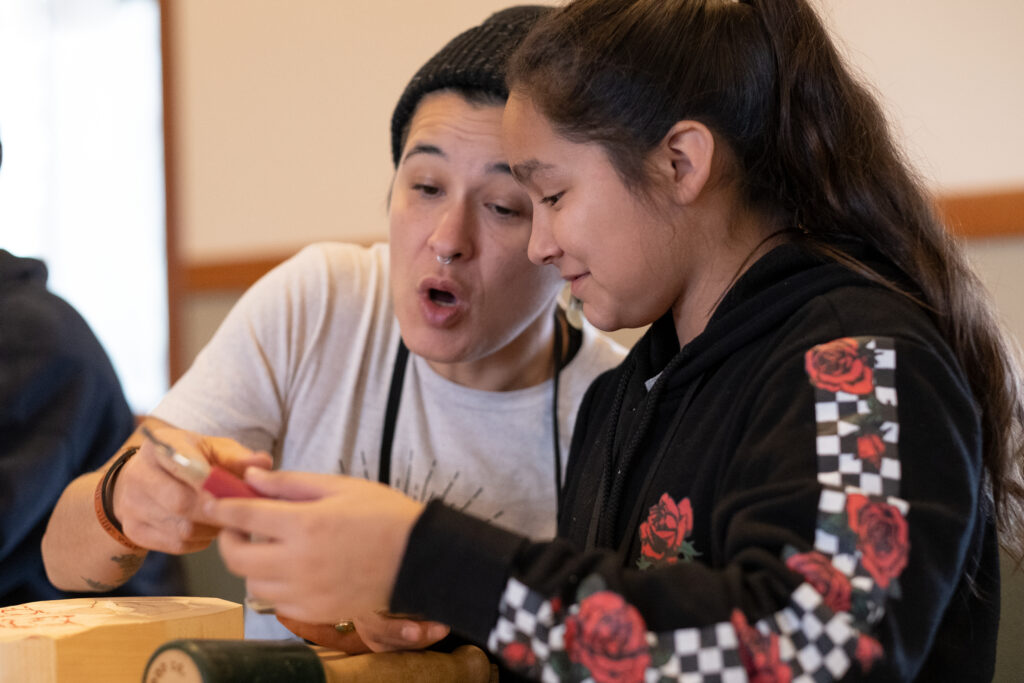
Shameka Gagnier presently resides with their partner and family in the unceded traditional territories of The Nisqually, Puyallup and Squaxin Island Peoples. They carry bloodlines from Central (Purépecha) and Northern (Cherokee Nation) Turtle Island, Africa (Northern and Western), and Europe (Ireland, England, Spain); many stories and names have been lost due to exploitation, foster care, and adoption.
They are committed to working within those intersections to create and support spaces that center art, food, and nourishment for black and indigenous communities. Currently they are a first generation student working towards their undergraduate degree at The Evergreen State College, where they are focusing on Indigenous Studies, Multicultural Communications, and Art.
Gagnier is a multi media artist, working as a wood carver, metalsmith, printmaker, performance artist, music maker, and gardener. Currently they are working with a collective called Black Well Red Thread Collective. This collective creates multimedia art installations with community engagement elements. Within the last year Gagnier has had the opportunity to work as a project coordinator in community lead projects. Much of Gagnier’s work as an artist is done in collaboration, as is their teaching pedagogy. Gagnier works as a coordinator and an artist mentor for Native Voices. This learning exchange is one of the most generous and transformative. Working as a artist mentor is deeply enriching work, the young people bring new perspectives, curiosity, skill, adaptability, and courage. As an educator these engagements continue to shape and enrich Gagnier’s approach to teaching, creating, and connecting.
Natosha Gobin (Tulalip)
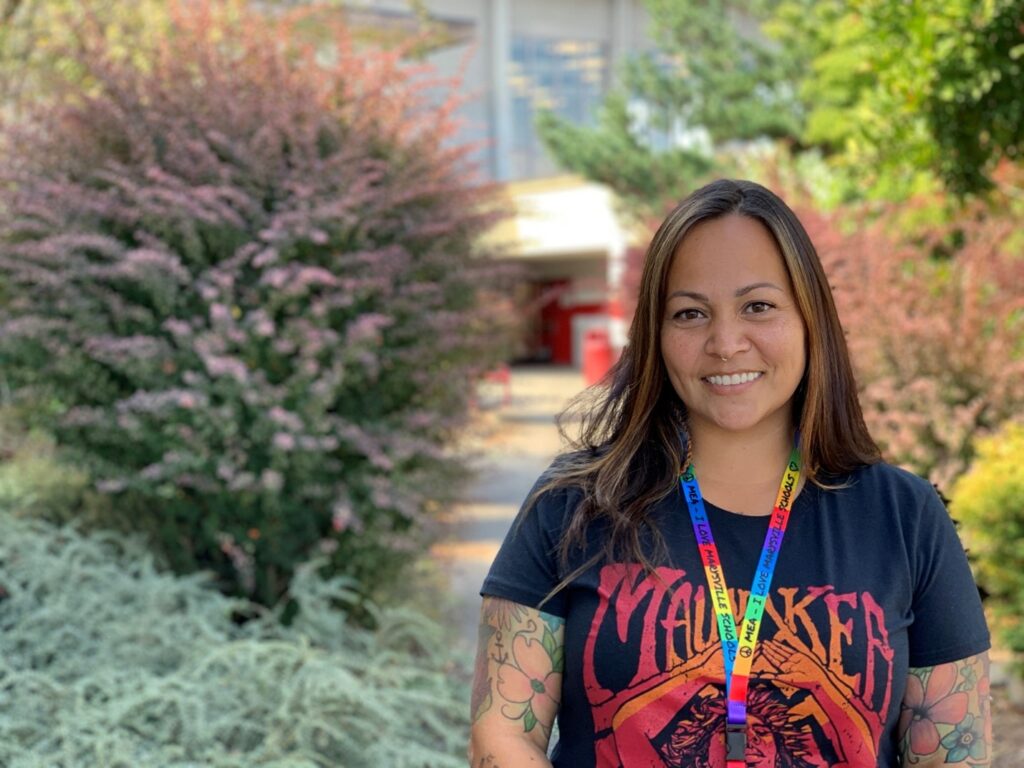
My name is Natosha Gobin, I am of Snohomish, Snoqualmie, Sauk-Suiattle, Skagit and Puyallup descent, a member of the Tulalip Tribes. My fathers’ side of my family are the Gobin and Young families, and my mother’s side of my family are the Hill and Price families.
I have spent my entire life on the reservation. My life revolves around my five children, my family, my community and the work I do as a Lushootseed language learner, speaker and teacher. I have been with my department for over 20 years, working with various age levels from birth-elder, teaching both in the Marysville School District and Tulalip community. I graduated from MPHS in 1999, obtained by AA in Native American Studies from NWIC in 2007 and my BA in Native Studies Leadership from NWIC in 2019. I am currently enrolled in Evergreen State College as a special student, participating in the Beginning Weaving course led by Susan Pavel.
My passion is to ensure the proper historical events that have brought us to the place we are today are honored in our community as well as surrounding communities. Through understanding the history, we are able to have a better understanding of our relationships with one another and how we can strengthen the work we do to serve others.
Providing mentorship, teaching our youth ensures that we are able to pass on the teachings that have survived since time immemorial. Our time with the youth is sacred, and should be filled with learning our way of life, unlearning colonial harm, and encouraging our youth to honor their identity being Indigenous.
In my so called “free time” I have sought out ways to serve my community, including assisting in the community led “Together We’re Better” group; participating in Na’ahilahee Funds “Sovereign Futures” co-hort where along with others, we learned how to turn our community projects into action steps; as well as participating in one of my favorite programs to work with, Native Voices Arts Academy where I have been able to provide support in storytelling and partnerships to get materials delivered to the youth programs in my area.
Jefferson Greene (Warm Springs)
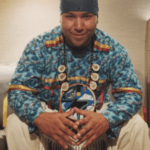
I am a cultural artist born and raised on the Warm Springs Indian Reservation. My relatives and my culture have groomed me for sharing much of my life experiences, learnings, understandings and adventures with communities throughout the Northwest region. I’m deeply involved in my ancient Columbia Plateau culture, its ceremonies and practices, I also thrive in the modern world.
My culture is based on generosity. We’ve been put here on this earth to share and gift and prepare for the next giving. I teach language, legends, song, dance and dance group, weaving, acrylic painting, and necklace/bracelet/earring making. After completing my Bachelor of Science Degree in three disciplines, Management, Marketing, and Advertising, I began serving the Confederated Tribes and people of Warm Springs coordinating Community Projects, writing grants, producing Arts and Entertainment, and being a Public Educator on Columbia Plateau History and Customs. Most recently, my interests have brought me into Columbia Plateau Language Preservation. I am apprenticing under several first Language Ichishkíin Speakers from Warm Springs, Yakama and Umatilla.
Elaine Grinnell (Jamestown S’Klallam)
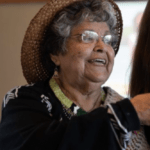
Renowned storyteller, basket weaver, indigenous cook and Jamestown Klallam Elder, Elaine Grinnell was born October 16, 1936 in Port Angeles, Washington. She married Fredrick C. Grinnell in 1960 and they have three children: Jack, Julia and Kurt. Zackary, Nickolas and Mackenzie (Jack & Michelle), Khia, Michael, Sarah and Jon (Julia & Jon), Alonah and Jaden (Kurt & Terri) are her grandchildren. Mildred Francis Prince Judson, her mother, was a full blood Jamestown Klallam.
Harold Peter James, her father, was a full blood Lummi. Her grandparents on her mother’s side were David and Elizabeth Hunter Prince. Elaine’s great grandfather was the Prince of Wales. Her great great grandfather, Cheech-ma-han (Indian spelling) was known as Chetzemoka, Chief of the Klallam.
Of her work, Elder Grinnell says, “It is my desire to spread the word of the Klallam people, their culture, legends, food, survival, coping devises, dress and social structure within the community and families. Sharing with all peoples is the way of my people. Honor is foremost and announcing your family name gives those who receive you permission to decide if you are a good representative, if not, they know whom to contact. It is my intention to always honor my family and Tribe or suffer shame.”
Elaine is a historian, storyteller and cook. She does traditional cooking at different functions for her own tribe as well as other tribes. In addition, she teaches classes in Native American drum making, basketry and Native American cooking alongside other family members. In her storytelling, she includes legends, creation, animal and lots of fish stories.
Julia Grinnell-Borde (Jamestown S’Klallam)

My Native name is Kʷkʷilcəd, I am named after my mother Kʷilcəd- Elaine Grinnell. I am from the Prince family, a tribal citizen of the Jamestown S’Klallam Tribe and a descendant of the Lummi Nation. Daughter of Elaine and Fred Grinnell, great -great-great granddaughter of Chief Chetzemoka, Chief of the Jamestown S’Klallam people.
I was born and raised on the beautiful Olympic Peninsula, playing and gathering food on the same beaches my mother, Elaine was raised on, and ancestors before us. I left for a short period of time to go to school, and returned to live near my parents and grandparents. This is where I raised my four children, on Jamestown Beach in Sequim, Washington. They, like myself, grew up connected and a part of our tribal community.
Years ago, my mother Elaine, as a board member for Northwest Native Basketry Association (NNBA), invited my two daughters and I to join the weaving conference. Since then, I have been taught by, and have been teaching beside master weavers from Makah and Lummi Nations; along with other master weavers from all Nations, at the NNBA gatherings. Since 2008, I’ve been teaching the Youth Track program during the NNBA basket weaving conferences. We have been asked to teach at Weavers Teaching Weavers in Lummi, No Frills events, and private gatherings as well.
Since I have been teaching our Youth Track weavers how to weave baskets for over a decade now; I often get the privilege of seeing a child weave their first basket. I have enjoyed every minute with them and watching them as they grow from year to year. My students have ranged in age and experience, from 3 years old to elders, some with many more years of experience than myself.
The joy on a student’s face when they complete their basket, or feel they have mastered the basket I am teaching, alongside the pride they feel when they show their family is heartwarming and unlike any other experience involving both art and culture. Our hope to leave this special gift behind for many more generations to enjoy, and to pass on to their children and loved ones.
Sarah Grinnell Klostermeier (Jamestown S’Klallam)
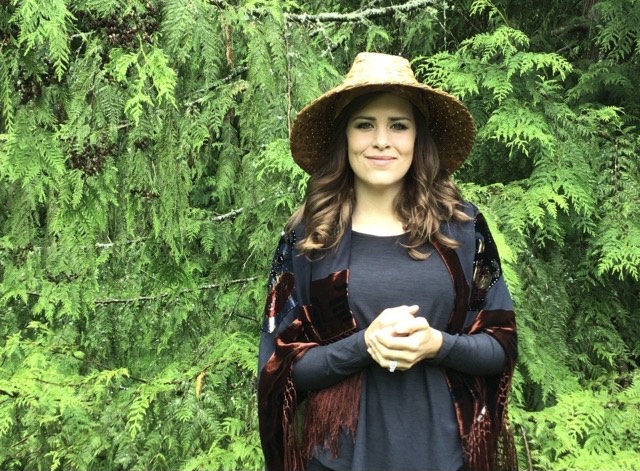
Sarah (Grinnell) Klostermeier is the granddaughter of Elaine and Fred Grinnell, and the daughter of Julie Grinnell-Borde and Steven Donahue. Sarah remains very close with her siblings: Khia Grinnell, Michael Donahue, and Jon M. Donahue. Together, they all grew up on Jamestown Beach, in Sequim, Washington, as did generations before them.
Sarah is from the Prince family in the Jamestown S’Klallam Tribe, and from the James family in Lummi.
After graduating Sequim High School, she obtained an Associate’s Degree from Whatcom Community College and continued on to complete a Bachelor’s Degree in Communication Sciences and Disorders, minoring in Psychology, from Western Washington University.
Her time in Bellingham allowed her to expand her cultural teaching experiences and build relationships. Bellingham is where she met her husband, Jacob Klostermeier, a descendent of the White Earth Band of the Chippewa Nation, in Northern Minnesota. As a family, they now live on the Olympic Peninsula, to be surrounded by her family, and her tribe. Her and her family love outdoor activities, and camp all year around throughout Washington.
As a child, Sarah was taught to weave by her grandmother, and honored Elder, Elaine Grinnell. She has had various other teachers, including master weavers from the Lummi Tribe, and Makah Tribe (Theresa Parker). Sarah began teaching Native American Youth through the Northwest Native American Basketweavers Association (NNABA) in 2008, at the age of sixteen. She has since then attended every year to teach youth, adults, and elders. She has been invited to teach at the Weavers Teaching Weavers, in Bellingham for numerous years, and No Frills weaving events that are put on by NNABA, throughout the years, at rotating locations. Opportunities have expanded greatly, with hosted gatherings as well as gatherings put on personally to teach those in her network.
Since 2019, Sarah has been an Artist Mentor, and an active member of the leadership team for Arts Impact; Native Voices. Grandmother Elaine Grinnell, Mother Julie Grinnell, and her host inter-generational teachings; via in-person and virtual academies for Native youth around Washington State. Together they teach a variety of skills including baskets, varying sizes of Reed baskets, woven cedar journal covers, morningstar cedar mats, and more.
Sarah loves to teach, and enjoys the relationships built through teaching the traditional art. She plans to pass the tradition on to her daughter, Ahliah (5), and many generations to come. Teaching is a lifelong path for her, and she plans to develop herself and skills all the while teaching youth.
Kayla Guyett
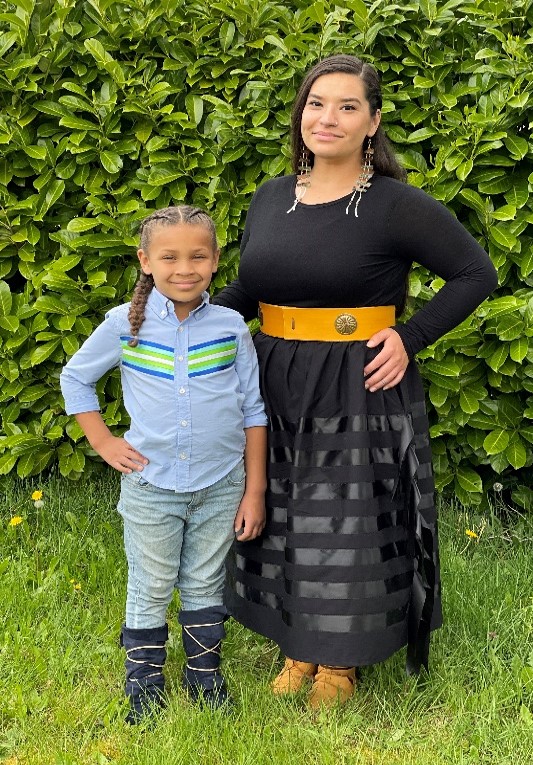
Kayla Guyett is the daughter of Mary Gutierrez and granddaughter of Mary White Chakewii, from the Jicarilla Apache Tribe located in Dulce, New Mexico. After graduating from the University of New Mexico where she studied History and Native American Studies with a focus in language revitalization; she returned to Washington to raise her son. Prior to joining the Office of Native Education Kayla was at Highline Public Schools as the Native Literacy and Culture Specialist working with our Native students as well as systems that impact both policy and students directly.
Before working at Highline, Kayla was a culture teacher at Chief Leschi School, eventually receiving certification as a Lushootseed language teacher from the Puyallup Tribal Language Department. Tribal languages have been a passion of Kayla’s for the 11+ years she has worked in education, and while still young in her language journey she strives to learn from elders in the community as well as elders in this work to best assist and support our Tribal Language programs across the state.
Mariana Harvey (Yakama)
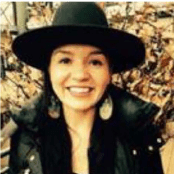
Mariana is a citizen of Yakama Nation, an íła (mother) and an artist with a passion for protecting Native foods and medicines and sharing their gifts in community. Mariana co-led Native student buffalo harvests in college which sparked her journey into Tribal Food Sovereignty. She worked for 7 years serving Native youth in leadership development initiatives nationally with the Native Youth Leadership Alliance and Affiliated Tribes of Northwest Indians Youth.
She is a founding development team member of the Tend, Gather and Grow curriculum. Mariana holds a B.A. Degree in American Indian Studies.
Jason LaFontaine (Cheppewa)
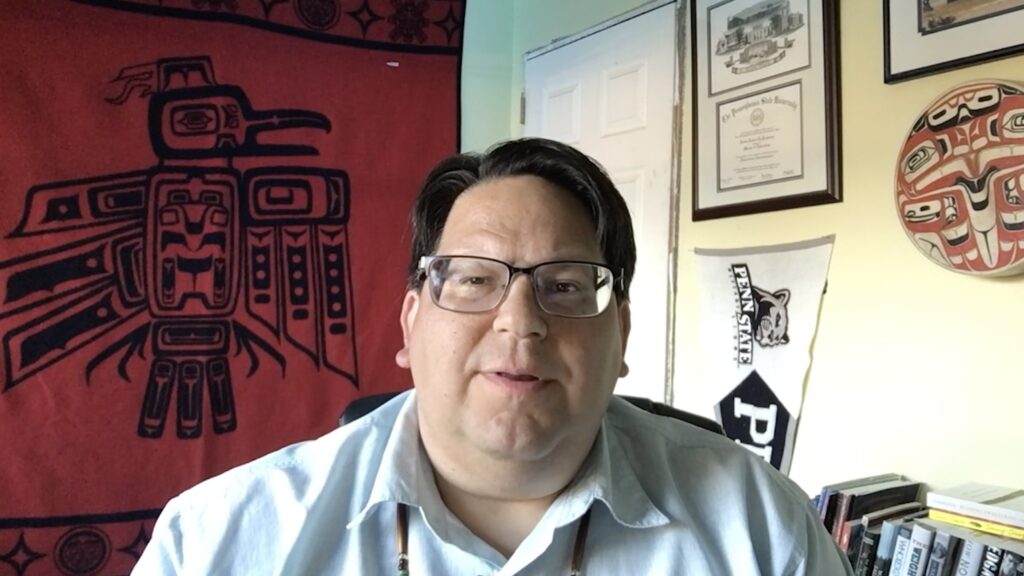
Jason LaFontaine is an enrolled member of the Turtle Mountain Band of Chippewa. He manages the Puget Sound Educational Service District’s Native American Education Program, currently serving over 600 Native youth in four Pierce County school districts.
Jason has worked in Native American education in the region for 15 years and has served on the board for the Washington State Indian Education Association and the Western Washington Native American Education Consortium. He is also a trainer of the OSPI Since Time Immemorial sovereignty curriculum.
Jason has helped shape the Native Voices Arts Project since its beginning. He is an active member of the
Native Voices Leadership Team that guides the on-going curriculum development, programming, evaluation and communication about the project. In collaboration with Arts Impact Theater Artist Mentor, Rachel Atkins, Jason offers theater-infused experiences for Native youth to develop their voices as actors and activists for positive change in their communities and their lives.
LoVina Louie (Coeur d’Alene, Colville, Nez Perce)

LoVina Louie is schitsu’umsh (Coeur d’ Alene) Tribe, nselxcin (Okanogan/Colville), Nimipu (Nez Perce) she is a descendant of Chief Morris Antelope of the schitsu’umsh and Chief Manuel Louie of the Inkaneep Band in Oliver BC Canada. She is a graduate of the University of Idaho where she received her Bachelors in Organizational Sciences with an emphasis in Community and Tribal Wellness.
She was recently featured on Lifetime Movie Network 50 Women in 50 States and a speaker at the TEDx Coeur d’Alene event. LoVina is a board member for the Native Wellness Institute, a national trainer and facilitator in youth leadership development, strategic planning, family constellations and community healing and wellness planning. She also has certifications from the Healthy Native Communities Fellowship and Na’ah Illahee Fellowship. She has worked with youth and adults in wellness and healing for over twenty years throughout North America. LoVina is the visionary behind the newly developed and revolutionary exercise series “Powwow Sweat” and co-directed the American Indian Film Festival and Red Nation Film Festival award winning music video “We Shall Remain.” As a former Miss Indian World she travelled to hundreds of tribal communities and this experience expanded her world view and desire to help all Indigenous people. LoVina is a wife, mother, grandmother, daughter, sister, friend and an amazing human being. Her passion and zest for life is infectious.
Dr. Laura Lynn (Chickasaw)
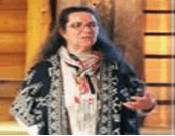
Dr. Lynn is currently the Program Supervisor for the Office of Native Education at the Office of Superintendent of Public Instruction (OSPI’s ONE Program). Prior to her work at OSPI, Dr. Lynn served Native students in many ways. For 10 years, she was the Educational Equity and Evaluation Consultant at Puget Sound Educational Service District, Laura collaborated with staff to develop the STI curriculum for Early Learning.
She also worked with OSPI’s former ONE Program Supervisor, Michael Vendiola, to build new relationships between OSPI, PSESD and Tribal Compact Schools to ensure schools receive needed resources and assistance to provide quality education to native students.
Her incredible leadership and steely dedication have also led her to collaborate with Joan Banker of ONE at OSPI, WWU, WSU and Evergreen State College to implement another historic piece of legislation: SB 5028. This bill, passed in February 2018, requires all state universities to integrate STI into their teacher preparation education programs.
Laura’s revolutionary heart always leads her to work in service of our children.
Sara Marie Ortiz (Pueblo of Acoma)

Sara Marie Ortiz (Pueblo of Acoma) graduated from the Institute of American Indian Arts and Antioch University Los Angeles’ MFA program with a focus in creative nonfiction. She’s formally studied law, Indigenous education, global self-determination in Indigenous communities, radio, theater, and film. Ms. Ortiz has been presenting her creative work nationally and internationally for over fifteen years and has published work extensively, including in prestigious publications such as the Kenyon Review, Ploughshares, Sentence, and Fulcrum.
Her first collection Red Milk (2013) is available on Amazon; she is currently at work on her second collection called Savage: A Love Story. Sara Marie Ortiz lives in Burien, Washington and manages the Native Education Program for Highline Public Schools. Sara Marie has been with Arts Impact since 2018.
Yvonne Peterson (Chehalis)
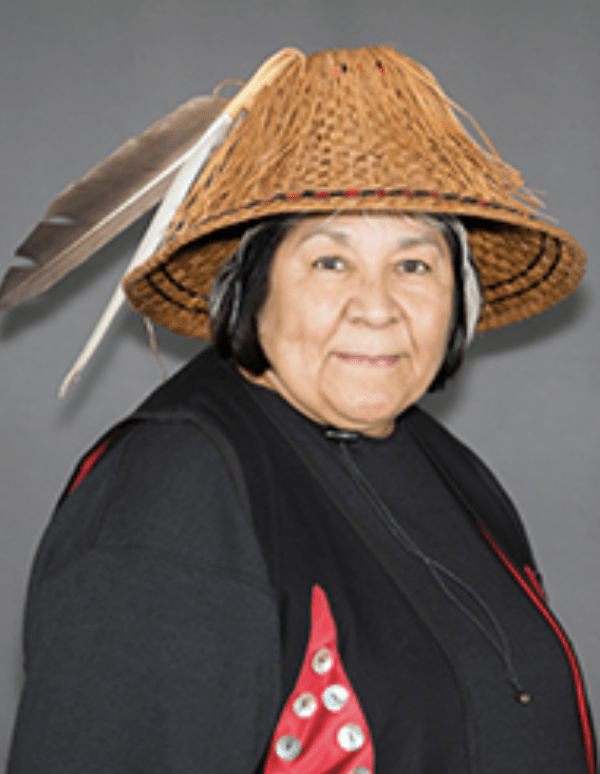
Yvonne Annette Toon Nee Mu Sh Dupuis Peterson (Chehalis) invites us all to “sit beside” each other and learn – the way her mother showed her to live a caring life. Growing up rich in salmon, berries, and much natural bounty, Yvonne was taught to work hard for family, community and self in the prairie and river lands of her people. Her ancestors are woven into her consciousness and actions, she breathes their same breath and walks the paths they created for her generations ago. It is weaving, in fact, that founds the basis of her culture understandings.
Weaving baskets connects her to the Chehalis’s cultured natural world, strands of plants and memories coming together in a beautiful contained wholeness to carry into the next generation. Expressing her prayers as poems, Yvonne seeks to “transform the past into the future through a prism of caring.” Yvonne is a political scientist, educator, and intergenerational cultural awakener who weaves together traditional and academic methods at home and at the Evergreen State University. As Yvonne says, “You don’t teach everyone the same weave because then they won’t need each other.” Yvonne assures those around her to trust their own thinking, persevere, and show their faces to the ancestors.
Chehalis Elder, eighth generation master weaver, and professor of Indigenous Studies at the Evergreen State College, Yvonne Peterson received Bachelors degrees in Elementary Education and Ethnic Studies from Western Washington University, and a Masters in Political Science from the University of Arizona. Professor Peterson is a founding member of the Indigenous Studies program at the Evergreen State College where she has taught for the past 36 years. With her husband and teaching partner, Gary Peterson, Professor Peterson has collaboratively designed and taught interdisciplinary courses that center Native arts, culture, education, political science and advocacy to shape the next generation of indigenous leaders, creators and agents of change. In recognition of her decades of service to Native students and communities, Ms. Peterson was awarded the Enduring Spirit Award from the Native Action Network in 2015.
Erika Warren (Quinault)
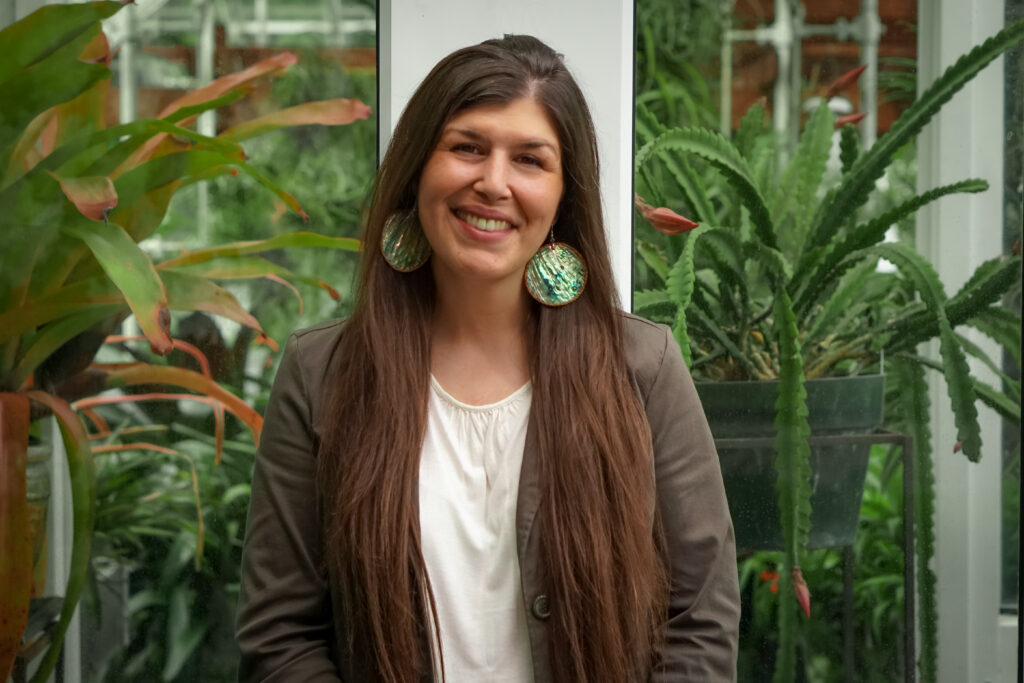
Erika Warren is a citizen of the Quinault Nation and resides in Olympia with her partner and 12-year-old twin boys. She holds a degree from The Evergreen State College in Indigenous Health and Education, with an emphasis on wild foods and plant medicine.
Her academic and professional work centers culturally responsive youth and community programming, intertribal collaboration, and creating community-led place-based education models, moving away from the ‘banking model’ of education to help support, cultivate, and empower creative thinkers and problem solvers.
Erika is committed to supporting marginalized communities through all of her work. She serves on the Board of Directors for Garden Raised Bounty (GRuB) in Olympia, a local nonprofit that works to address hunger and provides food education and access to youth, veterans, and low-income families. Erika also works with Na’ah Illahee Fund, creating healthy pathways for Indigenous youth to food sovereignty, inquiry-driven project-based learning and self-determination.
Erika is deeply committed and passionate about her work with Arts Impact. As an Indigenous parent who experienced inequities in the public school system and now guides her own children through their learning, Erika is eager to help develop authentic culturally-grounded learning experiences for Native youth and their families.
Patsy Whitefoot (Yakama)
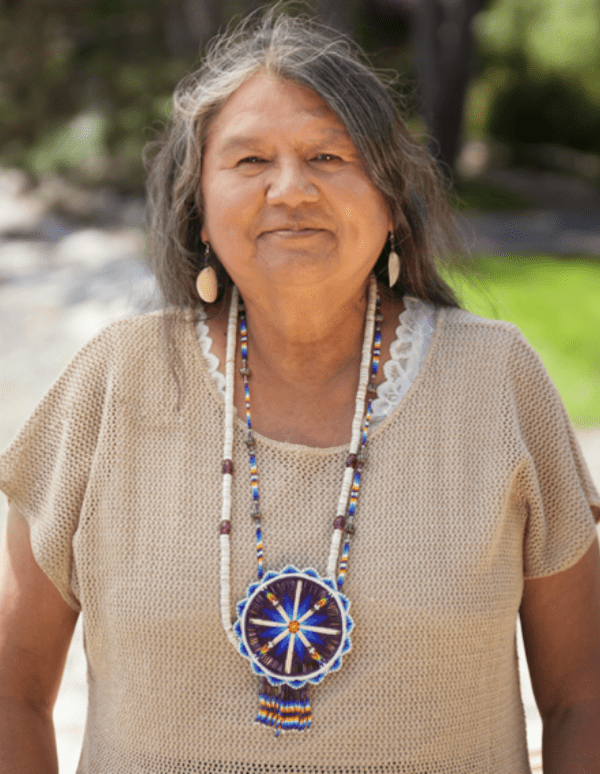
Patricia “Patsy” Whitefoot (Yakama Nation) Elder and renowned educator was born and raised in the original homelands of the Confederated Tribes and Bands of the Yakama Nation, Ms. Whitefoot lives in White Swan, WA, where she was raised by her maternal grandparents. She continues to live in the eastern foothills of the Cascade Mountains where her early lessons were grounded in the natural environment. Family travels along the Columbia River to fish and gather the traditional foods fostered a deep relationship with extended family and the diverse lands of the Yakama people.
The depth of Patsy Whitefoot’s experience in Indian education is exceptional, having served at different times as superintendent, principal, consultant, counselor, teacher, and visionary founder of many instrumental programs. She has won an array of awards; in 2009, President Obama appointed her as a member of the National Advisory Council on Indian Education. For 20 years, Patsy served as the Education Committee Chair for the Affiliated Tribes of Northwest Indians and is the former President of the National Indian Education Association. She has three children who all graduated from White Swan High School on the Yakama Reservation, ten grandchildren, and two great-grandchildren. In rearing her children and supporting extended family, she is impressed in the Native children’s natural gift for learning. In her role as an educator, she advocates her ancestors’ vision of holistic health, environmental and spiritual well-being with origins steeped in the diverse Native languages, values, cultures and histories of the Americas.